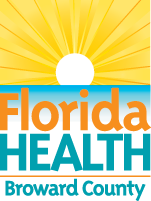It's a New Day in Public Health.
The Florida Department of Health works to protect, promote, and improve the health of all people in Florida through integrated state, county, and community efforts.
FL Department of Health Reminds Public about Possible Sewage Problems
September 11, 2017
**HURRICANE IRMA **
Public Health Advisory #3
Contact: Candy Sims, Public Information Officer
(954) 895-5745, Candy.sims@flhealth.gov
(Fort Lauderdale) – With some areas in Broward County still without electrical power, some people may experience difficulties with sewage septic systems not functioning properly. If you have a septic system that operates by a pump, it will not operate without electricity. Regardless of the system, people should refrain from using water in their home or business as much as possible until electricity is restored. Without properly working pumps, the tanks will fill and may cause backups of sewage.
General Precautions:
- Do not let children play in waters that are contaminated by sewage.
- No one (adults and children) should walk or play in waters that may be contaminated.
- If you live or work in a low-lying or flood-prone area, the ground in your area may be saturated from Hurricane Irma or from recent rainfalls. These areas may become contaminated with sewage, people should use water as little as possible to prevent backups of sewage into your home.
What should I do if sewage backs up?
- If a sewage backup has occurred, stay out of affected areas and keep children away. If your entire area has been saturated, abandon the home or business until all affected areas, including but not limited to carpets, rugs, sheetrock, drywall, and baseboards, have been thoroughly cleaned and disinfected.
- If sewage has overflowed in open areas or streets, etc., avoid these areas and keep children out of these areas.
- If you are having problems in areas served by sewer systems, please contact your city or county utility department to insure they are aware of problems in your area.
DOH-Broward officials recommend the following measures to ensure proper sewage clean-up:
- Walls, hard-surfaced floors and many other household surfaces must be cleaned with soap and water and disinfected with a solution of 1 cup of bleach to five gallons of water.
- Thoroughly disinfect surfaces that come in contact with food and children’s play areas.
- Wash all linens and clothing in hot water or dry-clean.
- Items that cannot be washed or dry-cleaned, such as mattresses and upholstered furniture, must be air dried in the sun and sprayed thoroughly with a disinfectant.
- Steam-clean all carpeting.
- Fiberboard, fibrous insulation and disposable filters that have contacted floodwater or sewage should be replaced in your heating and air conditioning system.
- Wear rubber boots and waterproof gloves during clean-up.
Be careful about mixing household cleaners and disinfectants, because combining certain types of products can produce toxic fumes and result in injury or death.
It can be difficult to throw away items in a home, particularly those with sentimental value. However, keeping certain items soaked by sewage or floodwaters may be unhealthy. In general, materials that cannot be thoroughly cleaned and dried within 24-48 hours should be discarded.
For more information, call DOH-Broward at (954) 467-4705 or visit https://broward.floridahealth.gov
Rumor Control Hotlines: Broward County 311 or (954) 831-4000 or www.broward.org/hurricane. Florida: 1-800-342-3557.
About the Florida Department of Health
The department, nationally accredited by the Public Health Accreditation Board, works to protect, promote and improve the health of all people in Florida through integrated state, county and community efforts.
Follow us on Facebook, Instagram and Twitter at @FLHealthBroward. For more information about the Florida Department of Health please visit www.FloridaHealth.gov.





Connect with DOH